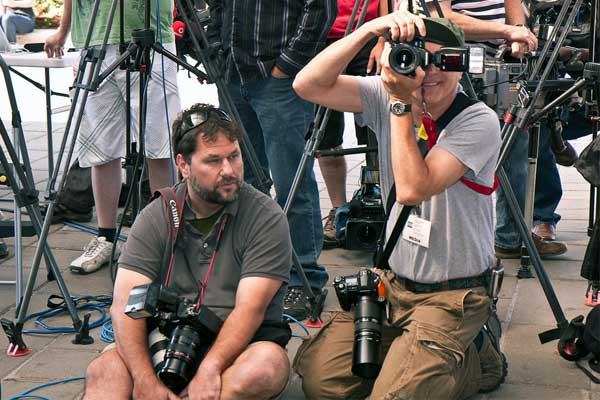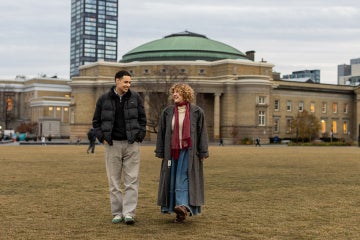
University of Toronto hosts Worldviews conference
Published: June 19, 2013
The relationship between the media and higher education in a complex and quickly shifting landscape will be the focus of the Worldviews conference at the University of Toronto June 19 to 21.
“Media and the academy have existed in parallel universes over recent years,” says Jeffrey Dvorkin, director, University of Toronto Journalism Program at the University of Toronto Scarborough. “This is an attempt to see how we can connect these two sectors in a really effective way.”
The conference will bring together academics, journalists, communications professionals and administrators from around the world to discuss themes such as the growth of global university campuses, the future of higher education and journalism, the roles of universities, and academic freedom in relation to civic needs.
U of T professor Glen Jones, Ontario Research Chair for Postsecondary Education Policy and Measurement, is one of the conference organizers. He says Worldviews is a unique opportunity to bring two highly dependant groups together to share viewpoints and challenges.
“These two industries need each other,” says Jones. “Higher education needs the media to communicate information and help tell and interpret stories to the broader population. The media, in turn, rely on academic expertise to provide understanding and context to events.”
Both Jones and Dvorkin say the Worldviews conference comes as both the media and higher education sectors are experiencing similar periods of flux.
The advent of digital technology and the rise of new media have not only forced traditional media to reassess its economic foundation, but have changed the way people access, consume and relay news and information. These trends in information accessibility have impacted higher education, with the advent of open courses such as Massive Open Online Courses (MOOCs).
Higher education is also facing funding challenges and new dynamics as global educational systems continue to expand.
“Worldviews is about everything to do with the intersection of higher education and media with a lot of international dimensions,” says Jones. “It’s less about scholarly papers and more about informed, creative and innovative conversation.”
U of T President David Naylor will be participating in a discussion about the changing media perceptions of universities and colleges. The panel will also include alumna Anne Sado, President of George Brown College, Simona Chiose, education editor for the Globe and Mail and Toronto Star education reporter Louise Brown.
For Dvorkin, an important issue the conference will address is the training provided by universities to aspiring journalists.
“The challenge for journalism schools is how to train students when media organizations – their future employers – are at the same time trying to decide what they need,” he says. “We need to start thinking about where the future is going and train our students to be change agents inside those organizations.”
Also from U of T, philosophy professor Mark Kingwell will discuss academic freedom and freedom of the press. Robert Steiner, director, Fellowships in Global Journalism, will discuss journalism training.
U of T law student Sarah Rankin will be taking part in the session on the student relationship with the media with Varsity news editor Zane Schwartz.
“Our society is facing significant questions about what we want education to do, what we think its purpose is and how we think it should be delivered,” Rankin says. “The media are our best assets for working through those questions collectively.”
Rankin says she believes it's an open issue as to how effectively a collective conversation can be filtered, mediated and processed through the needs of the media.
“That's exacerbated by the media's own questions about its future right now, including where print might be going, and how to balance deep investigation with marketplace demands.”
Although there will be recommendations resulting from the conference, Jones says its goal is not to shift higher education policy or regulate the media.
“It’s a collection of individuals who want to understand things,” says Jones. "The goal is to connect people with different situations and perceptions of key issues to share a learning experience.”
Dvorkin says participants at the conference will be asking “what does media need from the academy, and what does higher education need” from media.
“We have a lot to offer each other,” says Dvorkin. “I want to hear ideas I haven’t heard before, something radical to help transform this relationship. I’m hoping to be shocked.”



